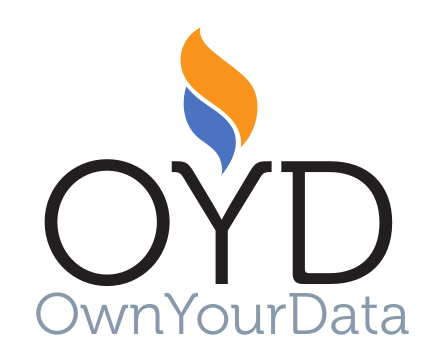The MyData Weekly Digest is a weekly English newsletter from OwnYourData dedicated to reporting within the people-centric approach to personal data management.
Read the “best of” news here or sign up for the MyData Weekly Digest to receive weekly updates.
News
1 October 2021
What Happened When Germany Tried to Fight Online Hate Speech?
“Harassment and abuse are all too common on the modern internet,” writes the New York Times. “Yet it was supposed to be different in Germany.”
Big Brother: A critique of the 4th Industrial Revolution
A Data Democracy Comes With Individual Data Control
In our new book (September 2021), we look at the growing trend of personal data stores or personal data intermediaries, helping individuals take control over and empower themselves with their data. If we want to create a fair and equal society, we call it a data democracy, neither state nor big companies should control our data – and thus our lives. This does not mean that the state or companies do not sit on some of our data. But you are in the driver’s seat and retain control of your full profile. #data-intermediary #personal-data-store
The pandemic is testing the limits of face recognition
Government use of face ID systems exploded during the pandemic—but tying it to critical services has left some people locked out at the moment they needed help the most. #coronavirus #facial-recognition
Britain tamed Big Tech and nobody noticed
The Age Appropriate Design Code – now the Children’s Code – has caused huge global changes. Not that tech platforms want to admit it. #business #children #uk
Biometric-based DID
With added security feature in DIDs enabled by Humanode, even if the keys are compromised, not all is lost. It is not clear from the blog post though how those additional security features work and what measures are taken to secure biometric identification… #biometric #identity
COVID-19 pandemic: A review of smart cities initiatives to face new outbreaks
While the world still struggles against the devastating effects of the COVID-19 pandemic, governments and organisations are discussing how new technologies can be exploited to relieve its impacts and how future pandemics can be avoided or minimised. Among the envisioned solutions, the development of more efficient and widespread smart city initiatives can improve the way critical data is retrieved, processed, stored, and disseminated, potentially improving the detection and mitigation of outbreaks while reducing the execution time when taking critical actions. #cities #coronavirus
Ownership of User-Held Data: Why Property Law is the Right Approach
In this paper, we show that in some narrow instances the ownership of personal data is actually and legally possible: new “user-held data” technologies are emerging and help individuals have their personal data in their “personal data clouds”; Individuals can collect their data from various sources (such as online accounts, wearable devices, IoT, and manually input data). We show that such ownership of user-held data is not different from other types of assets such as money in your bank account, intermediate securities, receivables, floating charge, and your crypto. #ownership
Turn it around – could businesses sell data to consumers?
Thousands of companies buy and sell consumer data with other companies. Most recently, hundreds of business plans have been prepared, which essentially revolve around the idea of consumers selling their own data to monetize it. Probably neither of these models is a sustainable business. But what about consumers starting to pursue data from companies and public sources? Could it turn the perspective around? #business #ownership
Tools
/e/
/e/ cloud is an initiative by /e/ Foundation as a replacement to Google Drive and Gmail while using open-source tools like Nextcloud. #smartphone (zugehörige Webseite öffnen)





